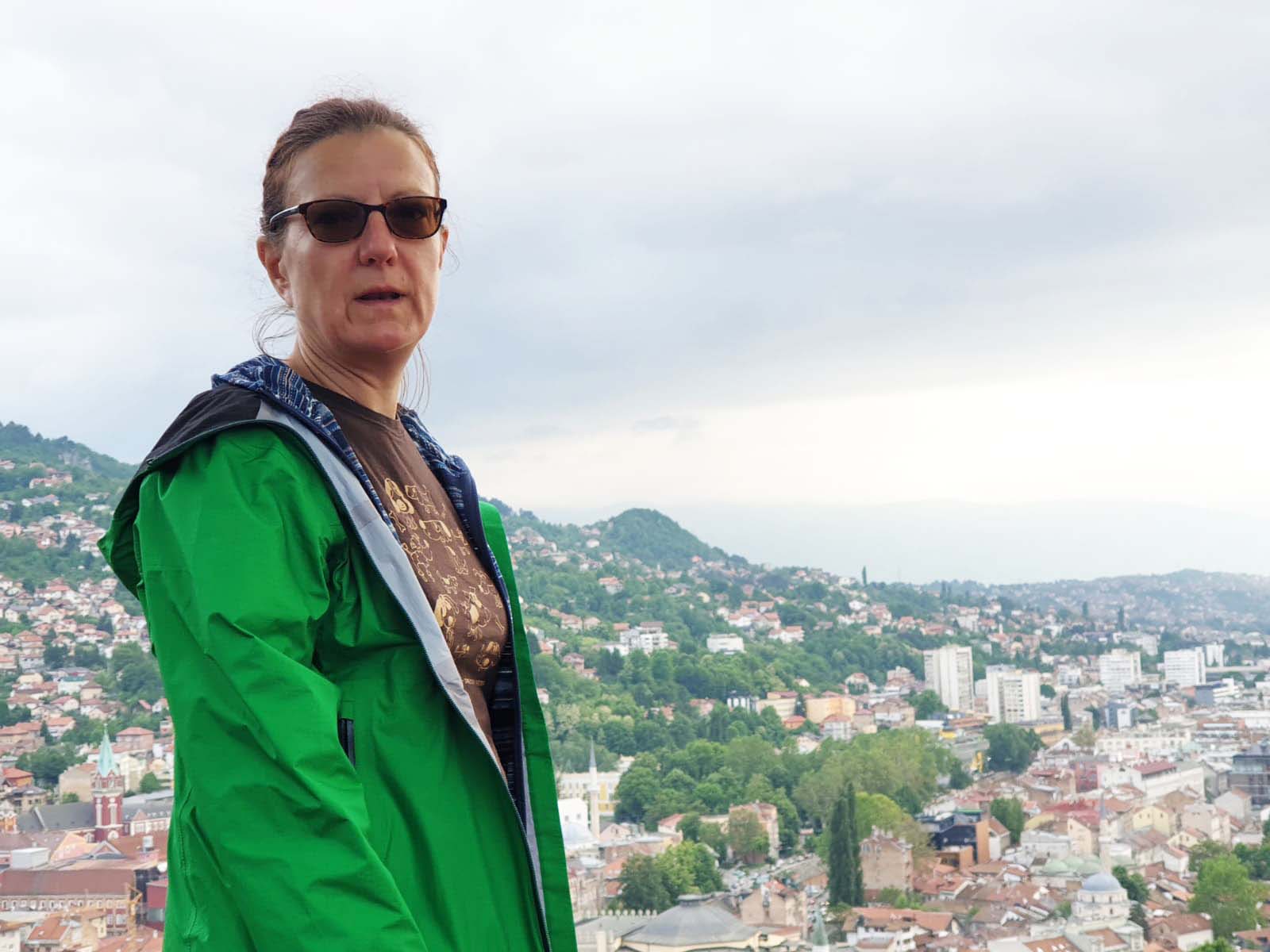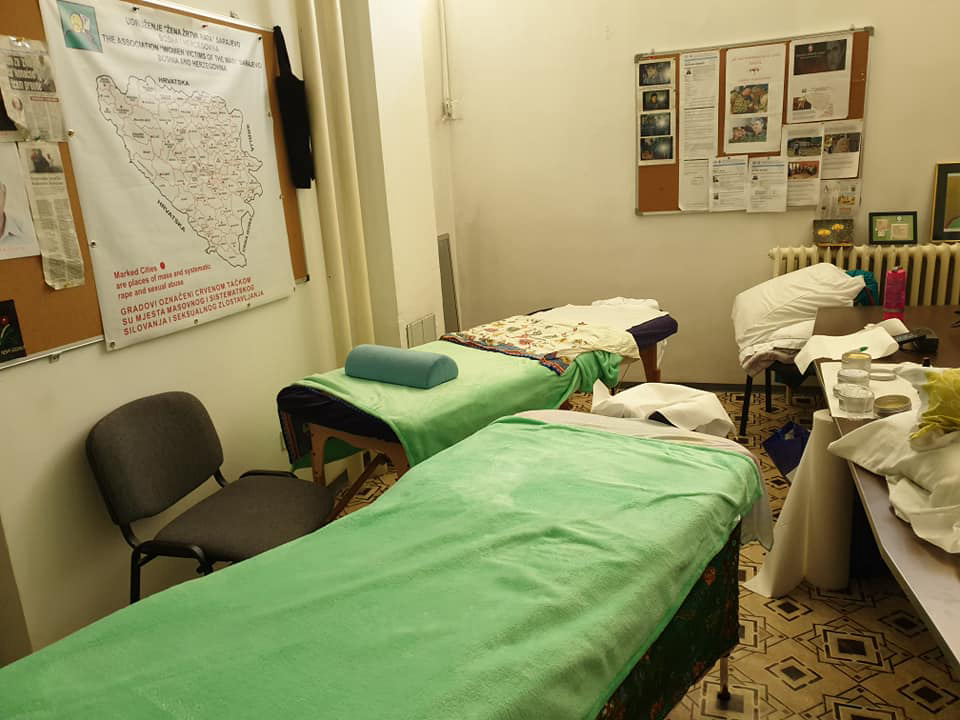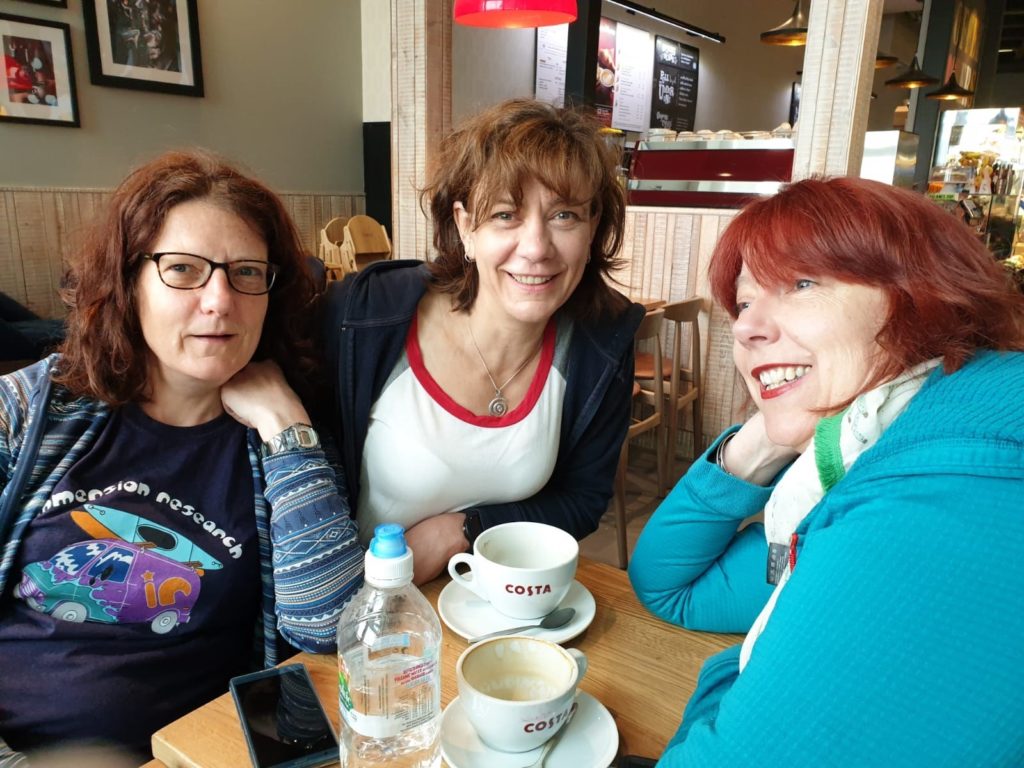Margaret uses her healing hands to help those affected by the brutal Bosnian War
Date 2.08.2019

“I’ve massaged people who have had most of their family killed, who have been tied up and beaten for days, raped, lost limbs, or shot by snipers.”
A University of Northampton academic has been helping those suffering from the after-effects of the Bosnian War – through the power of her hands.
It is estimated around 100,000 people were killed during the conflict that took place in Bosnia and Herzegovina between 1992 and 1995, with more than 2.2m people displaced and an estimated 12-20,000 women raped. The conflict’s most notorious massacre was the Srebrenica genocide, which saw 8,000 mainly men and boys murdered, while numerous crimes against humanity were also committed, often in concentration camps, where thousands of civilians were held.
Almost a quarter of a century after the war ended, a UK-based charity is helping to provide relief to those suffering from the mental, physical and emotional after-effects of the conflict.
The Healing Hands Network runs a clinic in the county’s capital, Sarajevo, where complementary and holistic therapists volunteer their time to practise on those affected by the conflict, at no cost to the client.
The University’s Margaret Bates, who is Professor of Sustainable Wastes Management, recently flew out to Sarajevo after qualifying to practise clinical massage, and the experience of working with those affected by the war has brought benefits to both her and her clients.
Margaret said: “I have heard some horrendous stories – on the clinical notes they don’t write that people were in a concentration camp, they just write CC as it’s so common.
“I have massaged people who have had most of their family killed, who have been tied up and beaten for days, raped, lost limbs, shot by snipers and so on.
“Some days the hardest thing is not to cry. But on a positive note I have had hugs and kisses, gifts of food and homemade jewellery.”
Margaret, who spent two weeks in Bosnia working nine-to-five alongside her sisters Susie and Julia, added: “The treatments are very important to the people, and they are very important to us. The clients love the treatments; they love the way we make them feel but most of all they love the fact that we care; that when they feel the world has forgotten them, it hasn’t and we do care; that we will put in considerable time and effort to come and help them, to show that we haven’t forgotten and to try and make the nightmares a bit less.”
You can find out more about the Healing Hands Network and support its work on the website.
Margaret will return to Bosnia in 2020 and is seeking help to sponsor her trip.

The clinic in Sarajevo.

A map which records locations of abuse carried out during the Bosnian War.

Margaret, left, with sisters Susie and Julia en-route to Bosnia.